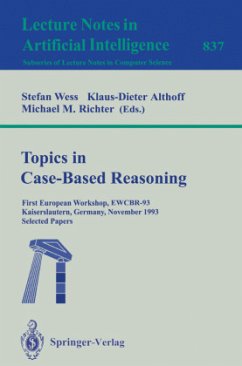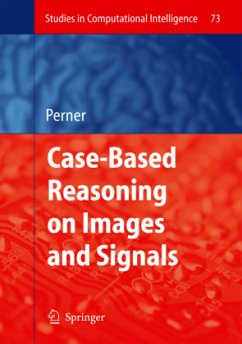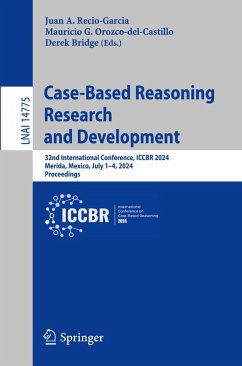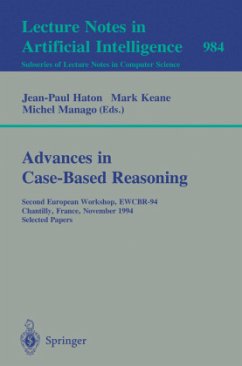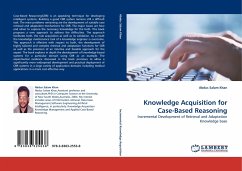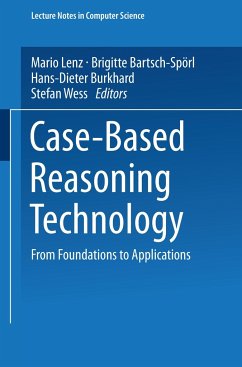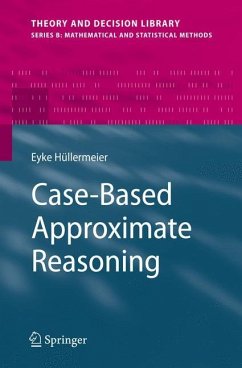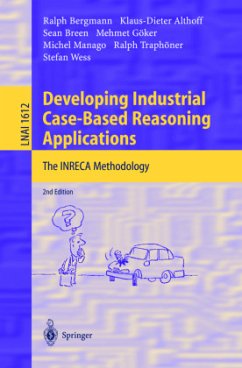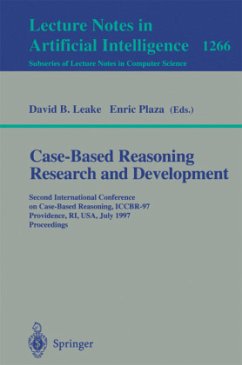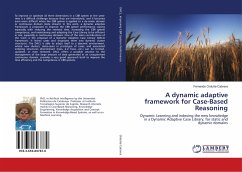
A dynamic adaptive framework for Case-Based Reasoning
Dynamic Learning and indexing the new knowledge in a Dynamic Adaptive Case Library, for static and dynamic domains
Versandkostenfrei!
Versandfertig in 6-10 Tagen
43,99 €
inkl. MwSt.

PAYBACK Punkte
22 °P sammeln!
To improve or optimize all three dimensions in a CBR system at the same time is a difficult challenge because they are interrelated, and it becomes even more difficult when the CBR system is applied to a dy-namic domain or continuous domain (data stream). In this work, a dynamic adaptive framework is proposed to improve the CBR system performance coping especially with reducing the retrieval time, increasing the CBR system competence, and maintaining and adapting the Case Library to be efficient in size, especially in continuous domains. One of the main contributions of the work is the proposa...
To improve or optimize all three dimensions in a CBR system at the same time is a difficult challenge because they are interrelated, and it becomes even more difficult when the CBR system is applied to a dy-namic domain or continuous domain (data stream). In this work, a dynamic adaptive framework is proposed to improve the CBR system performance coping especially with reducing the retrieval time, increasing the CBR system competence, and maintaining and adapting the Case Library to be efficient in size, especially in continuous domains. One of the main contributions of the work is the proposal of a Dynamic Adaptive Case Library (DACL) framework. It learns cases and organizes them into dynamic cluster structures. The DACL is able to adapt itself to a dynamic environment, where new clusters, meta-cases or prototype of cases, and associated indexing structures (discriminant trees, k-d trees, etc.) can be formed, updated, or even removed. DACL offers a possible solution to the management of the large amount of data generated in an unsupervised continuous domain. provides a very good approach both to improve the time efficiency and the competence in CBR systems.




